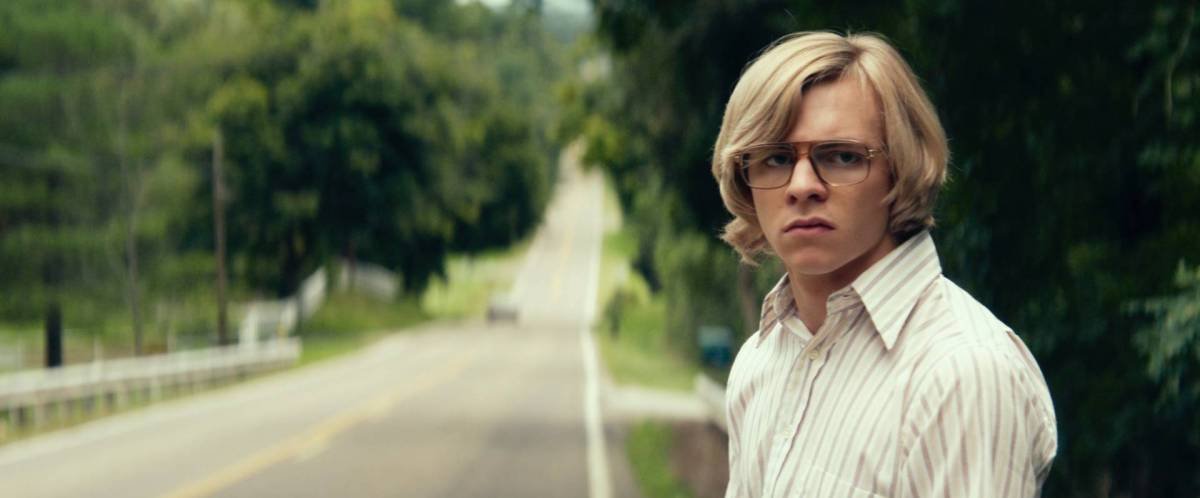(Note: This is a good movie, I liked it, but since this you’re on my website, let’s be clear: I am strongly persuaded by the work of researchers including, most prominently, Programmed to Kill author Dave MacGowan, who argue that the serial killer phenomenon of the ‘70s and ‘80s provided cover for deeper political events, that the typical lone wolf narrative presented to the public obscured the involvement of the intelligence community in cults, narcotics rings, human trafficking, behavioural experiments, assassinations, and that Serial Killer Superstars like Dahmer, Ted Bundy, Henry Lee Lucas, and Dave Berkowitz—and, of course, the non-killer Manson—were the patsies inside much larger plots, with their legends sealed and their psychopathies diagnosed by suspect commentators like Bundy’s “biographer” Ann Rule. I haven’t read John Backderf’s source material for My Friend Dahmer, so maybe there’s more to it than I realize, but the film is firmly inside the official narrative of Dahmer as solitary sex killer, and I therefore reject it. Really great soundtrack though! And Lynch is excellent.)
Up until very recently, Ross Lynch had never even heard of Jeffrey Dahmer. “This was my introduction,” says the 21-year-old actor, calling the Straight from Los Angeles. “It was kind of a shock altogether because when you read about all the things he did—it’s pretty unbelievable. I couldn’t really fathom what I was reading. But also there was a fascination involved, because I had this opportunity to play this guy—this kid, really—who is losing his humanity. It was really quite the opportunity for a young actor.”
That opportunity couldn’t have been more unlikely for a guy raised inside the Disney star factory. After four years on the tween-oriented TV show Austin & Ally and a side career in the pop band R5, Lynch took everybody by surprise when he showed up in My Friend Dahmer, playing one of the most notorious serial killers in recent US history during his painful teenage years. More to the point: Lynch nailed the part, receiving well-deserved critical hosannas for immersing himself in a role peppered with moments that would make the most seasoned actor squirm. With his oversize glasses, sunken chest, and neuro-atypical stride, Lynch’s physical transformation is already remarkable.
“First time he saw me,” says the actor, referring to John "Derf" Backderf, the graphic novelist whose award-winning autobiographical work was adapted for the film, “I noticed he didn’t really look at me all that much because I resembled Dahmer so much. On a few occasions he actually told me to take my glasses off because he was getting creeped out.” Lynch recalls that “Derf”—played in the film by Alex Wolff—otherwise kept his distance from the shoot ("He wanted to let the book be the book, and the movie be the movie") which took place in Ohio locations including the Dahmers' real family home. (The film’s killer soundtrack is no less accurate, using late ‘70s Akron and Cleveland-based punk bands like Rocket From the Tombs in its efforts to establish an unusually persuasive sense of time and place.)
Lynch remembers a lot of days “when I was just isolated, and alone in the woods, quite literally. And I was, like, expressing all this anger.” He’s also quick to point out that the film and its source material are both grounded in an empathic view of a horrendously lost and damaged soul; a man who, after being convicted of killing and sometimes cannabilizing his 17 victims, was murdered in 1994 as prison guards allegedly looked the other way. “As an actor, having no judgment is absolutely necessary,” he says. “There’s no way of ever taking back what he did later in life, obviously—it’s horrible—but at one point he was just this troubled high school kid. I think, after all, we make art to learn from certain scenarios. There might be a kid in the back of the classroom that nobody notices that might need someone to ask how they’re doing. Ultimately this film is a cautionary tale.”
Georgia Straight, November 2017
